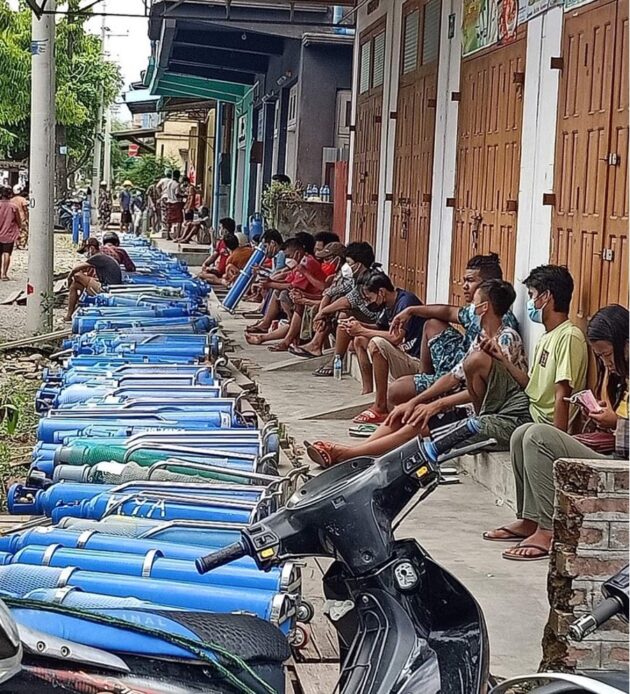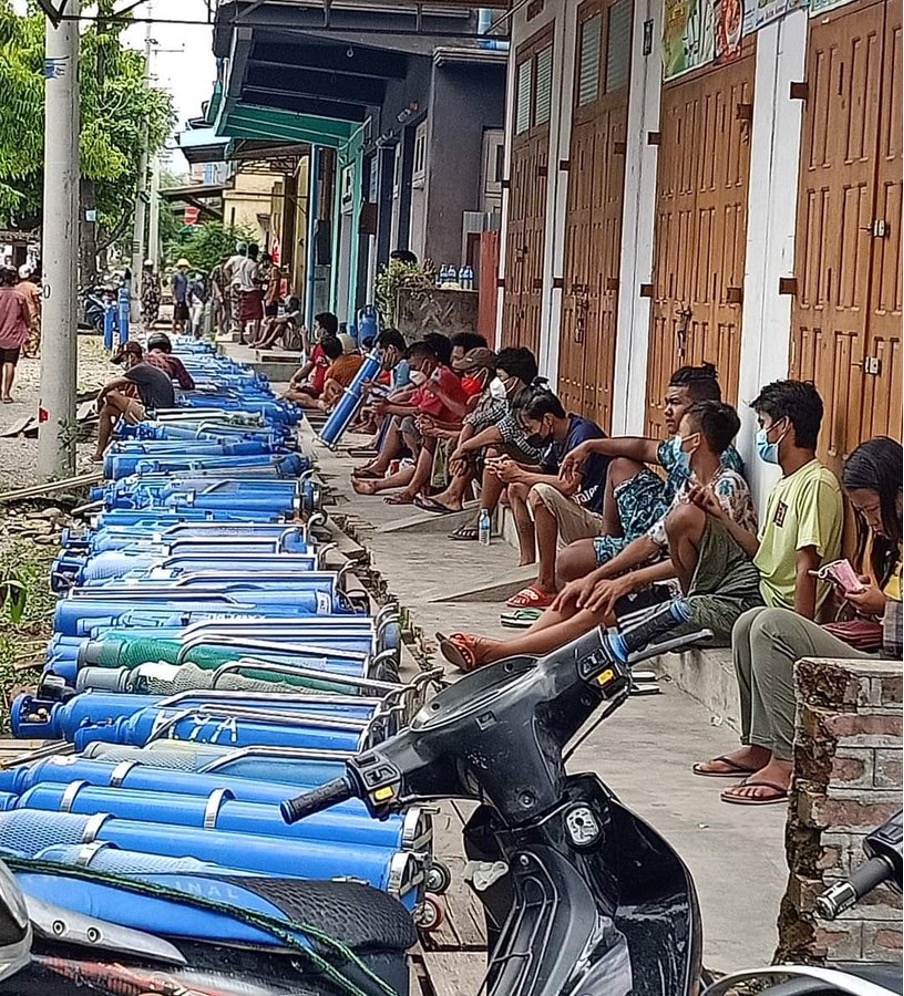9th July 2021
Things are on the move in Myanmar, and there are three major issues that are coming to the forefront that need a solution or there will be the makings of a first-rate disaster.
Myanmar is facing an unprecedented threefold tragedy: deadly violence, an out-of-control COVID-19 pandemic and economic collapse. The cost of saving lives will be enormous. The cost of containing COVID will be huge. The cost of fixing the economy will be massive. And all these problems can be firmly laid at the door of the Junta, in general, and Senior General Min Aung Hlaing in particular.

Unrelenting violence
More than 1,100 violent acts of organized resistance against the regime have reportedly killed about 1,200 troops. The first gun battle erupted between regime troops and a local guerrilla group in mid-June in Mandalay, a major city in the heartland. At this point, it is unclear if this clash was just the first battle in all-out urban warfare in the country, but the NUG said it planned to announce a “D-Day” on which all local resistance forces will launch a war on the junta.
Last week, residents of Demoso Township recovered at least 20 bodies after returning to the area after a ceasefire was agreed between the Tatmadaw (Myanmar’s military) and local armed groups. Some of the bodies reportedly showed signs of extrajudicial execution. At least 30 junta troops were reportedly killed during two shootouts with civilian resistance forces in Sagaing Region.
The UN Office for the Coordination of Humanitarian Affairs last week released a report stating that the number of people displaced by violence and fighting in Myanmar since the Feb. 1 coup had increased to around 230,000 and stressed that they need assistance. Meanwhile, attacks targeting the junta and its supporters persist in some parts of the country, as arms and ammunition supplies seem to have found their way into the hands of urban-based PDF members.
The Myanmar public is therefore very likely to experience more violence in the months to come.
Worsening pandemic
The Myanmar regime reported 1,580 new cases (with a 19.9 percent positivity rate) and 14 deaths from COVID-19 at the end of June, but there are worrying indicators that the regime is not providing accurate data. Meanwhile, the US government’s Centres for Disease Control (CDC) has rated Myanmar’s COVID-19 situation at the highest level of seriousness. Because of the current rate of spread, the CDC states that even fully vaccinated travellers may be at risk of contracting and spreading COVID-19 variants.
As doctors and nurses are leading the Civil Disobedience Movement, public access to healthcare has declined sharply since the coup. Though private and charity hospitals are able to meet some needs, suspension of immunization programs by the regime will paralyze the already poor healthcare system.
Reuters reported that the country has administered about 3 million doses of COVID vaccines. Assuming every person needs two doses, that’s enough to have vaccinated about 2.8% of the country’s population. As the former head of Myanmar’s COVID-19 immunization program, along with some key physicians, was detained to face charges of high treason for allegedly colluding with the NUG, it is doubtful the regime will be able to contain the pandemic to the extent that the NLD government did last year.
Given the general public’s distrust and fear of the military, it is clear the military cannot lead a national vaccine program. The military has already tried to use vaccine as a bribe in exchange for obedience, but the public has refused to cooperate.
Economic downturn
Anecdotes coming out of major cities indicate that even sales in the consumer non-cyclical sector are down more than 50 percent since the coup. The kyat has lost 20 percent of its value against the US dollar.
Independent Economists for Myanmar (IEM) recently reported that a sharp decline in household purchasing power will leave 25 percent of the population under the poverty line, seriously impacting both businesses and households. According to the UN Development Program, COVID-19 and the political violence following the Feb. 1 military coup could plunge half of Myanmar’s population into poverty.
The IEM also reported that the effects of reduced food supply and diminished household incomes will result in large numbers of households being pushed well below the poverty line, leaving them unable to meet basic consumption and nutritional needs.
Although under the current situation it is not feasible for international actors to provide direct humanitarian aid through military-controlled agencies, ethnic civil society groups, which have been carrying out cross-border programs for the past 30 years, can play an important role in providing aid to people who are in urgent need. For example, ethnic health organizations have the much-needed systems, skills, and community trust to implement large-scale COVID prevention programs. With the support of the international community, EHOs could provide COVID vaccines to large areas of the country.
To summarize, there is no sign of either the junta or the parallel NUG standing down from their respective entrenched positions. The present impasse could continue at least until the 76th UN General Assembly begins in September, because international responses and reactions are also fuelling domestic expectations in Myanmar, regardless of their feasibility.
The situation also provides an opportunity for the NLD, CRPH and NUG to work with ethnic leaders and civil society in helping the people on the ground by building trust, which will be necessary in political negotiations at the federal level.
Source The Irrawaddy 9th July 2021.
All of this can be laid at the feet of one man.
What is becoming noticeable is a gradual shift in the Chinese position and the reaction of the West. There are small signs of opportunities being floated and various actors are talking to each other. Unfortunately, the other Western diplomats have trouble trusting New Zealand, not because of the in-station diplomats, but because of the signals coming from the New Zealand government.
I am putting a report together which will be available tomorrow and will probably cause a few raised eyebrows.
Please share this article so that others can discover The BFD

